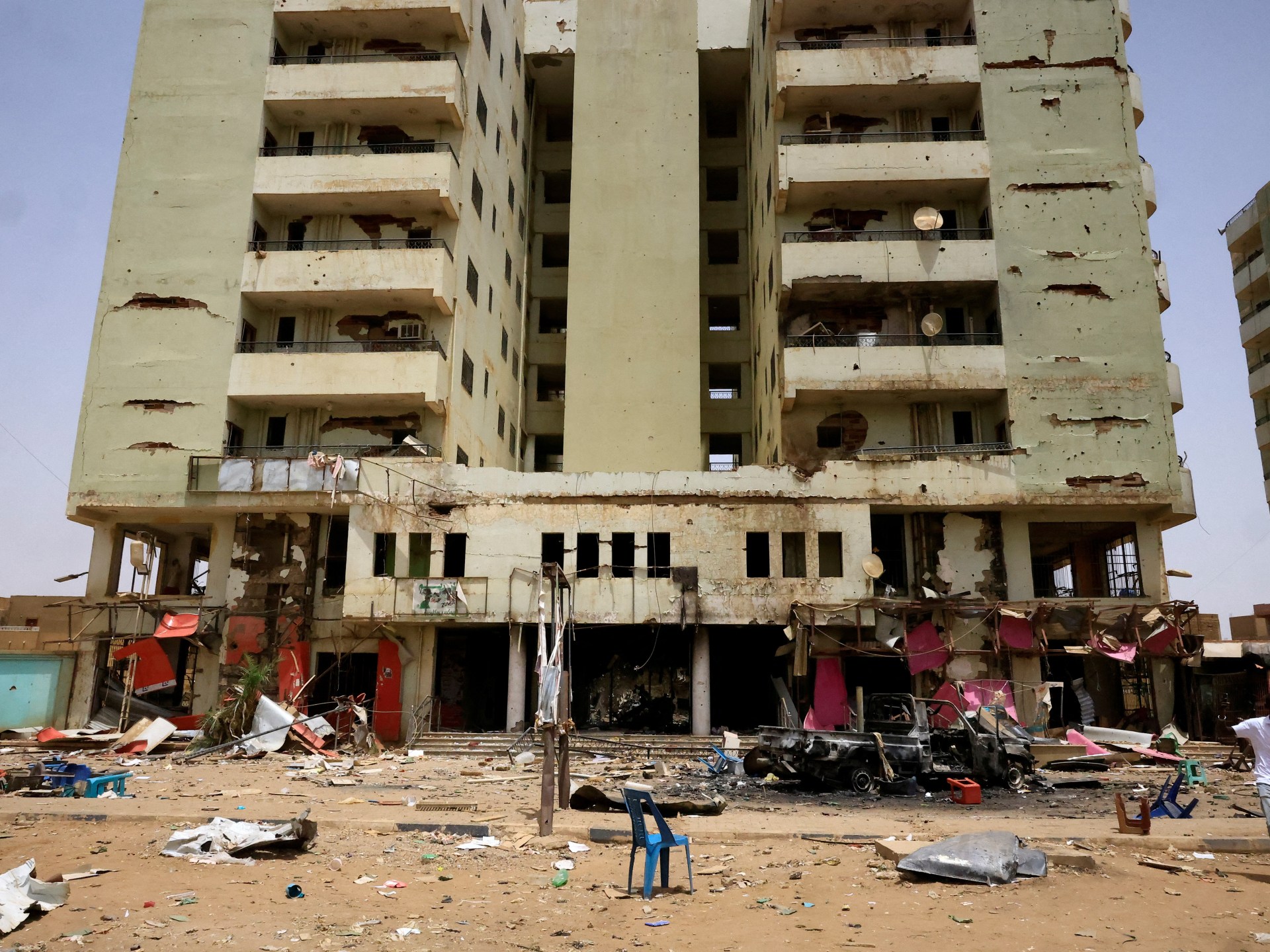The Sudanese army and the paramilitary Rapid Support Forces (RSF) have agreed to extend their ceasefire amid ongoing violence in the capital Khartoum and the western Darfur region.
In the final hours of the repeatedly broken three-day truce, due to end at midnight (22:00 GMT) on Thursday, the army said it would extend the ceasefire “for an additional 72 hours” following mediation efforts by Saudi Arabia and the United States.
The RSF also said it approved the extended truce, adding that the proposal came from two diplomatic groupings that include the US, Saudi Arabia, Norway, the United Kingdom and the United Arab Emirates.
On Thursday, warplanes patrolled over the capital’s northern suburbs as fighters on the ground exchanged artillery and heavy machine-gun fire, witnesses told the AFP news agency.
The previous ceasefire has not stopped the fighting but created enough of a lull for tens of thousands of Sudanese to flee to safer areas and for foreign nations to evacuate hundreds of their citizens by land and sea.
Together, the army and the RSF toppled a civilian government in an October 2021 coup but are now locked in a power struggle that has derailed an internationally-backed transition to democracy and is threatening to destabilise a fragile region.
The army claims it controls most of Sudan’s regions and is defeating a large RSF deployment in Khartoum, where some residential areas have turned into war zones.
Despite a partial lull in fighting since the first 72-hour ceasefire began, air attacks and anti-aircraft fire could be heard on Thursday in the capital and the nearby cities of Omdurman and Bahri, witnesses and Reuters journalists said.
The White House on Thursday said it was concerned by the ceasefire violations, adding that the situation could worsen at any moment and urging US citizens to leave within 24 to 48 hours.
US Secretary of State Antony Blinken said the ceasefire had been “imperfect” but “nonetheless has reduced violence”.
Earlier this week, White House national security spokesperson John Kirby also told Al Jazeera that the immediate priority for Washington was to bring down the violence.
“What we want is for the violence to stop altogether – of course – so that no more Sudanese lives are put at risk and humanitarian assistance can get to the people who need it,” Kirby said.
Hundreds killed
Al Jazeera’s Hiba Morgan, reporting from Khartoum late on Thursday, said “the focus right now by the international community and regional bodies seems to be on getting those two sides to stop fighting before turning to any chances of talks” towards a long-term solution.
At least 512 people have been killed and close to 4,200 wounded since the intensified fighting began on April 15. The violence has spread to the vast Darfur region, where conflict had simmered ever since civil war erupted two decades ago.
The Darfur Bar Association, a rights group, said at least 52 people have died in attacks by well-armed “militias” on residential neighbourhoods in the city of El Geneina, as well as on its main hospital, main market, government buildings and several shelters for internally displaced people.
Militiamen from nomadic Arab tribes entered El Geneina as the fighting between the RSF and army created a security vacuum in recent days, said one resident, who spoke to the Reuters news agency on condition of anonymity due to fear of retribution.
They were met with armed members of the Masalit tribe, with clashes extending across the city, causing a new wave of displacement.
The conflict also has limited food distribution in the country, where a third of its 46 million citizens are already reliant on humanitarian aid. The World Food Programme has said the violence could plunge millions more into hunger.
Speaking from Port Sudan on Thursday, Abdou Dieng, the United Nations aid chief in Sudan, said he was “extremely worried about the situation”, with food supplies a serious concern.
The Sudan Doctors Union also has said 60 of 86 hospitals in conflict zones had stopped operating.
At least 20,000 people have escaped into Chad, 4,000 into South Sudan, 3,500 into Ethiopia and 3,000 into the Central African Republic, according to the UN, which has warned as many as 270,000 people could flee if the fighting continues.


